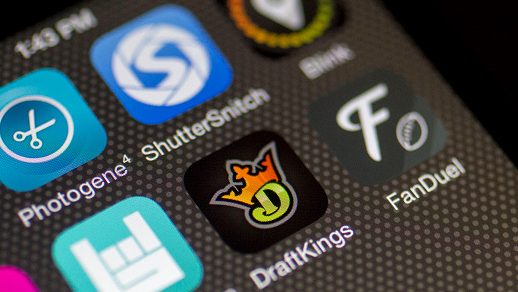
When the NFL Players Association recently sent an email to all agents regarding the manner in which the NFL is acquiring information that results in violations of the gambling policy, the union noted that the policy “is unilaterally imposed by the NFL and not collectively bargained.”
The NFL confirmed the dynamic, explaining via email earlier this month that the gambling policy flows from “the authority of the commissioner’s office to protect the integrity of the game.”
“The commissioner may develop and enforce policies that deter from conduct detrimental to the integrity of, or public confidence, in the NFL,” an NFL spokesperson said. “This would include conduct reasonably judged to be detrimental.”
The power of the league to protect the integrity of the game was indeed bargained by the NFL and the NFLPA. The relevant language appears in Article 15 of the standard player contract, titled “Integrity of the Game.”
“Player recognizes the detriment to the League and professional football that would result from impairment of public confidence in the honest and orderly conduct of NFL games or the integrity and good character of NFL players,” the provision explains. “Player therefore acknowledges his awareness that if he accepts a bribe or agrees to throw or fix an NFL game; fails to promptly report a bribe offer or an attempt to throw or fix an NFL game; bets on an NFL game; knowingly associates with gamblers or gambling activity; uses or provides other players with stimulants or other drugs for the purpose of attempting to enhance on-field performance; or is guilty of any other form of conduct reasonably judged by the League Commissioner to be detrimental to the League or professional football, the Commissioner will have the right, but only after giving Player the opportunity for a hearing at which he may be represented by counsel of his choice, to fine Player in a reasonable amount; to suspend Player for a period certain or indefinitely; and/or to terminate this contract.”
That’s fine, but the current gambling policy allows a player to use the apps on his phone to legally wager on non-NFL sporting events anywhere and everywhere. Players cannot gamble on other sports only “in any club or League facility or venue (e.g., practice facility, stadium, team hotel, Draft or other League or club event); on any League or club charter or other transport; while traveling on club or League business; or while making an endorsement or promotional appearance.”
How is that sort of fine-toothed distinction between what is and isn’t allowed not something that the union would have been involved in? Players deserve clear, understandable rules that their union was involved in crafting. The NFLPA should have demanded a voice in the process of determining when and where gambling is allowed, and the NFL should have wanted the union to be involved, in order to make it clear to all players that the union has bought in not generally to giving a powerful commissioner even more power but specifically to figuring out where the lines properly should be for gambling on sports other than NFL football.
Advertisement
Really, how does legal gambling on sports other than NFL football impact the integrity of the game? How is it an integrity issue if the player locks into a bet after he rolls into the parking lot at the practice facility, when it would have been fine while he was still out on the street?
These are niceties that cry out for a meaningful effort by the NFL and the NFLPA to craft clear and precise rules. And the union absolutely should have insisted on having some say in this.
The union can’t do it now without admitting that the union should have already done it. This makes it not likely that the NFLPA will suddenly, strenuously object to the gambling policy that the NFL unilaterally developed and is aggressively enforcing.
NFLPA should challenge NFL’s broad powers over player gambling originally appeared on Pro Football Talk